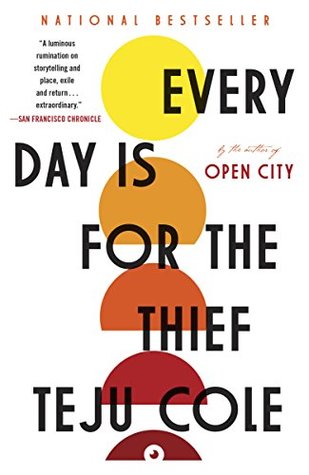More on this book
Community
Kindle Notes & Highlights
Money, dished out in quantities fitting the context, is a social lubricant here. It eases passage even as it maintains hierarchies.
For many Nigerians, the giving and receiving of bribes, tips, extortion money, or alms—the categories are fluid—is not thought of in moral terms. It is seen either as a mild irritant or as an opportunity. It is a way of getting things done,
There is a sense, I think, in which the swindler and the swindled deserve each other. It is a kind of mutual humiliation society.
The human cargo that ended up in New Orleans originated from many ports, most of them along the West African shore. And here was another secret: none of those ports was busier than Lagos.
The vanquished were brought from the interior to the coast and sold to the people of Lagos and to communities along the network of lagoons stretching westward to Ouidah. And they in turn arranged the auctions at which the English, the Portuguese, and the Spanish loaded up their barracoons and slave ships. Some of these intertribal wars were waged for the express purpose of supplying slaves to traders. At thirty-five British pounds for each healthy adult male, it was a lucrative business.
the Report of the House of Commons Select Committee on the Slave Trade in 1848, the trade out of Africa was in the tens of thousands every year in the early nineteenth century, much higher than it had been in preceding centuries. It reached an annual peak of 135,000 in the five-year period between 1835 and 1840. At that time, several hundred ships were being loaded up each year along the Niger Delta. And this was in spite of a British ban on the trade in 1808, and a British naval presence in Nigerian waters. According to Alan Burns in his History of Nigeria, Spanish, Portuguese, and Brazilian
...more
At times, the absurdity makes one laugh. Other times, the only possible response is a stunned silence.
Nigerians do not always have the philosophical equipment to deal with the material goods they are so eager to consume. We fly planes but we do not manufacture aircraft, much less engage in aeronautical research. We use cellphones but we do not make them. But, more important, we do not foster the ways of thinking that lead to the development of telephones or jet engines. Part of that philosophical equipment is an attention to details: a rejection of only the broad outlines of a system, a commitment to precision, an engagement with the creative and scientific spirit behind what one uses.
There’s a widespread belief in the agency of magic and malefaction. In addition to this animism is the recent epidemic of evangelical Christianity that has seized the country, especially in the south. Church has become one of the biggest businesses in Nigeria, with branches and “ministries” springing up like mushrooms on every street and corner.
Nigeria’s disconnection from reality is neatly exemplified in three claims to fame the country has recently received in the world media. Nigeria was declared the most religious country in the world, Nigerians were found to be the world’s happiest people, and in Transparency International’s 2005 assessment, Nigeria was tied for third from the bottom out of the 159 countries surveyed in the corruption perceptions index. Religion, corruption, happiness.
In Nigeria we experience all the good things that texture a life, but always with a sense of foreboding, a sense of the fragility of things.


